Onsen Spa in Minakami
I love going to spas on vacation so there was no doubt that I was going to find an onsen to go to in the mountains of Japan. I researched pretty thoroughly to find the right spa for our trip. I wanted it to be traditional, in the mountains, have outdoor pools, and a hotel for us to stay in. It also had to be open to tattoos.
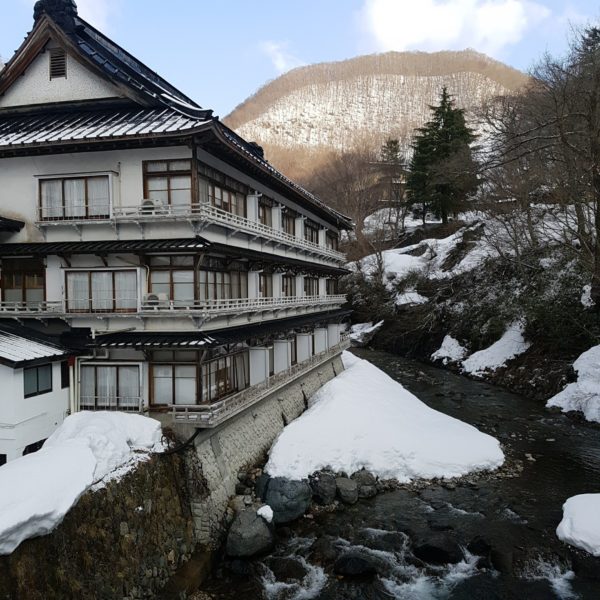
I found Takaragawa Onsen Osenkaku and it was perfect. They had everything we were looking for including:
- a shuttle bus from the train station in Minakami
- a traditional Japanese supper
- classic hotel rooms with tatami mats
- an multiple outdoor pool that were open to all-genders
- natural hot spring environment
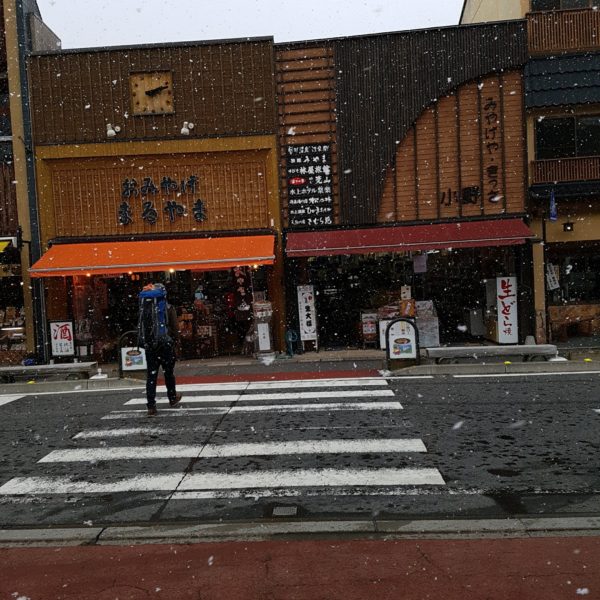
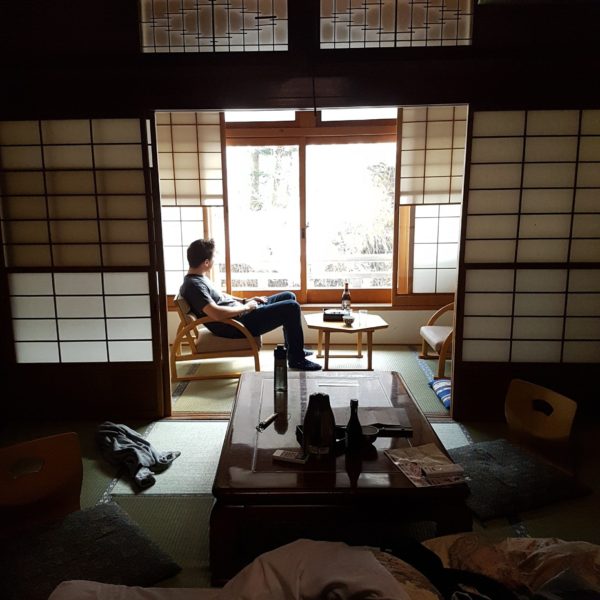
We had a really memorable time here. I don’t have many photos as I didn’t want to infringe on people’s privacy but managed to sneak a few.
When I was there, I was nervous about onsen etiquette and tried to be extra careful. To save future travelers the stress, I’ve outlined some tips below.
Onsen Etiquette
- Change into your yukata and heavy robe (to keep warm) and indoor slippers
- Go to the shower space
- Get naked, head to the shower room and find a stool. Here you can sit down and thoroughly wash yourself, squeaky clean.
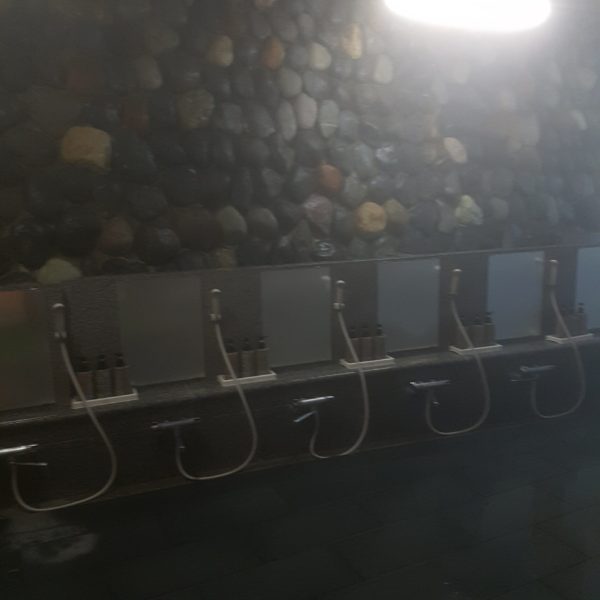
- After washing, you can jump in the hot tub and enjoy!
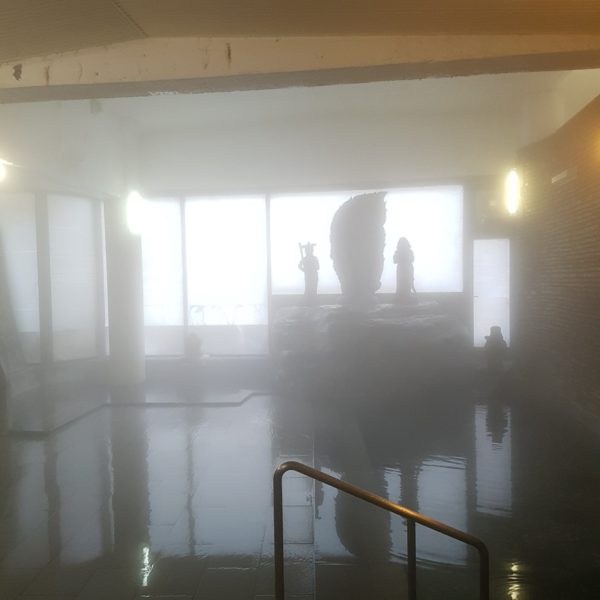
- Towel off, get back into yukata and heavy robe to head outside. Don’t forget your slippers!
- In the outdoor pool space, there is a little hut to place your belongings and change out of yukata and robe. At Takaragawa Onsen, women are given a ‘pool dress’ to cover themselves in the hot spring and men are given a washcloth to cover themselves when getting out of the pool.
- Leave your modesty cover-ups in the laundry baskets of the change room on your way out.
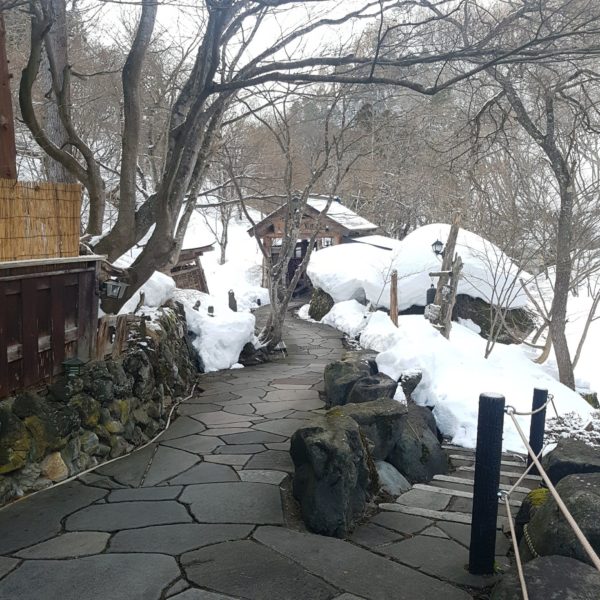
Path to the outdoor pools 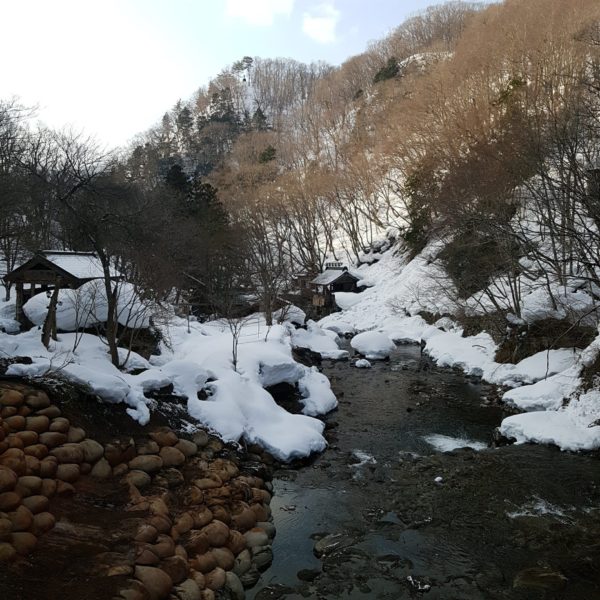
Outside of Takaragawa Onsen
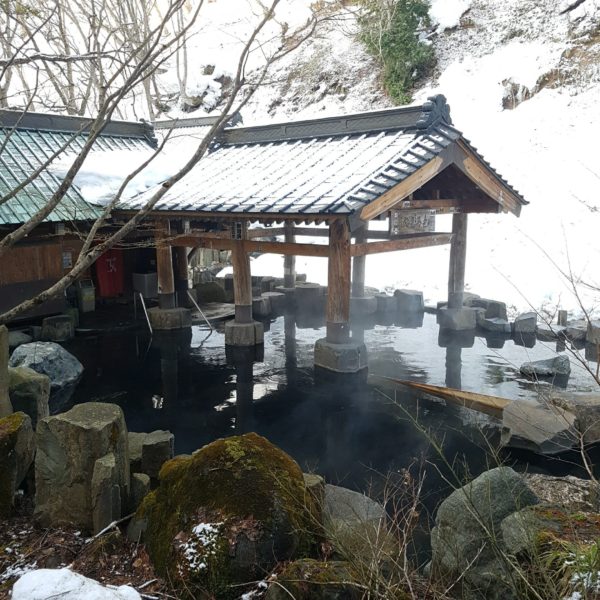
We had a lovely afternoon in the onsen and then had a HUGE meal.
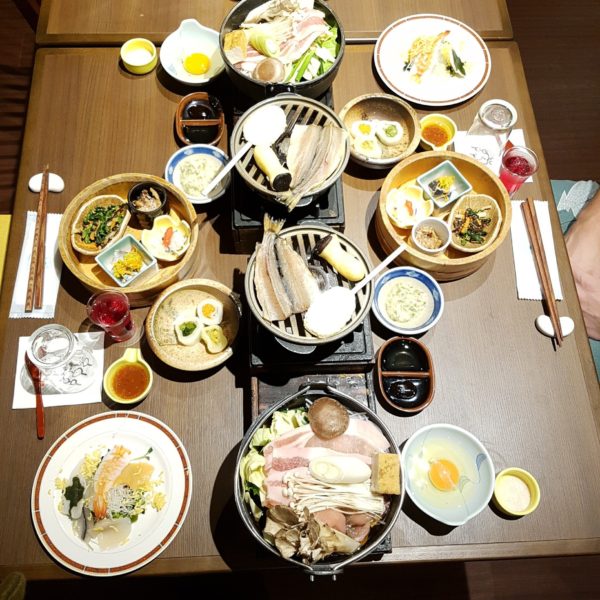
The next morning, we got up at 6 AM for a peaceful, sunrise onsen and it was divine. I find the Japanese method of bathing to be really invigorating, restorative, and relaxing all at the same time. Canadians could benefit from introducing some of their spa approach into our northern culture ‘survival’ techniques during the long winters.
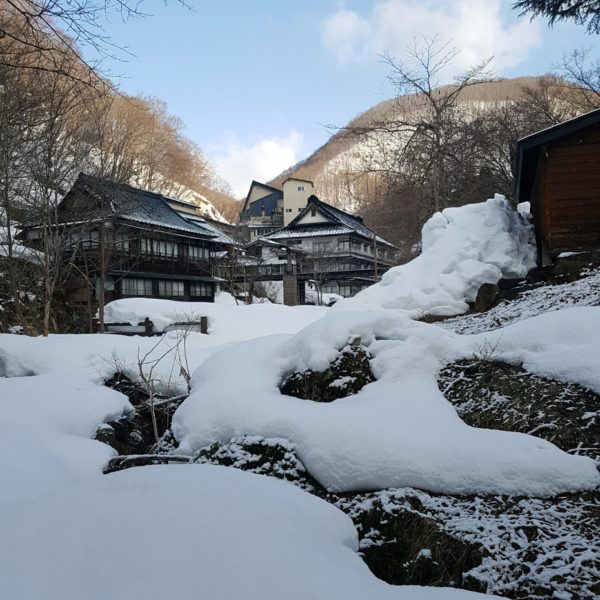
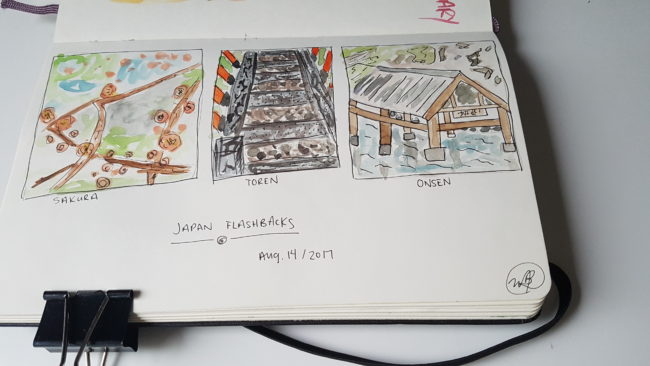
torii, meaning gate, at the Inari Shrine in Kyoto



Leave a Reply